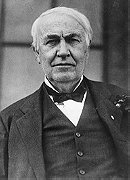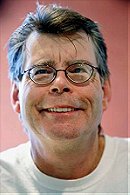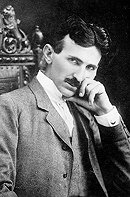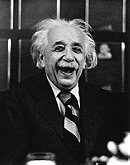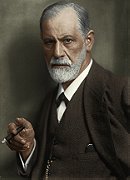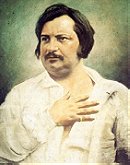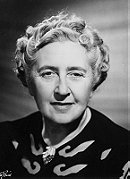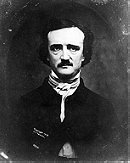(SC)10 Famous Geniuses With Weird Secret Habits
Sort by:
Showing 10 items
Rating:
List Type:
One of the greatest social reformers of Victorian London, Charles Dickens was an incredibly prolific author—but he was also a bit obsessive on some points. An employee reported that Dickens couldn’t stand to have a hair out of place, so the writer kept his comb nearby and ran it through his hair hundreds of times a day. Dickens was also obsessively specific in his requirements for the arrangement of his study. Experts who have analyzed Dickens’s life and works have blamed a mild form of obsessive-compulsive disorder and even epilepsy. His other creative secret? He paced while composing text and dictated his work to an assistant who did much of the physical writing for him. They’d sometimes work through each sentence multiple times, substituting words and changing their order before moving on.
Edison was another of the great minds who eschewed such necessities as sleeping. Specifically, Edison adopted a polyphasic sleep cycle, a nap-oriented sleep pattern that aims to free up more waking time over a person’s life. The polyphasic sleep cycle has recently enjoyed a resurgence in popularity; it’s an attractive option for those looking to increase their productivity. Unfortunately, most experiments on polyphasic sleeping have yielded rather groggy results.
Writers and teachers are known for their almost religious positions about punctuation and parts of speech—ever heard two grammar Nazis get into a heated argument about the Oxford comma? Stephen King has some firm views on grammar, to the point of drafting 2,000 adverb-free words every day. In his book On Writing: A Memoir of the Craft, King says, “I believe the road to hell is paved by adverbs, and I will shout it from the rooftops.” King makes a solid case (that you’ll only appreciate if you’re a lexophile) for powerful writing that’s completely devoid of adverbs. Adverbs, claims King, rob details and specificity from the rest of the sentence.
EarlySparker's rating:


Tesla didn’t start out quirky. He just kind of became a little off-the-wall as he aged. Tesla was known to begin work each day at 3:00 AM and continue until 11:00 PM. These habits caused him to suffer a mental breakdown at age 25. He then pulled himself together and continued the same regimen well into old age, working as many as 38 years without a break in his rigorous work schedule. The man was celibate, but got along well with pigeons. He had a few deep-seated revulsions: He couldn’t stand overweight women or jewelry of any kind (especially pearls).
Albert Einstein wasn’t just a genius. He was also a slow-to-speak young man who struggled to use language as a child, causing his parents and doctors great concern. Coupled with a stubborn, precocious rejection of authority, Einstein said his slowed development gave him more opportunities to think about life’s basic elements, like space and time. His sense of wonder at these concepts made him pose curious questions, eventually leading to such breakthroughs as his theory of relativity. Einstein never completely grew out of his odd habits. His chauffeur reports that he once plucked a grasshopper off the ground and ate it. He would also take his violin along on birdwatching treks, playing music with tears streaming down his face.
A pioneer in the field we now call neuroscience, Freud offered insight into the subconscious, changing the way psychologists approach the human mind. Freud’s quirk? Nicotine—and cocaine. The psychoanalyst’s addiction started early, and he soon smoked almost continuously. Freud tried to quit, but he suffered from severe depression during the process. Freud just couldn’t bring himself to kick the habit—even after 33 surgeries on his mouth and jaw to remove the cancer it caused. The man also experimented with self-medicating with large doses of cocaine. His ultimate product from this abuse was his Cocaine Papers, a “song of praise to this magical substance.”
Think you’re addicted to coffee? Chances are your caffeine problem doesn’t even come close to that of French novelist Honore de Balzac. This historical writer consumed as many as 50 cups of coffee each day, barely sleeping at all while composing his magnum opus, La Comedie Humaine.
She wrote 66 detective novels and 14 collections of short stories, but Agatha Christie didn’t write at a desk. As a matter of fact, she never even had an office—she wrote Murder on the Orient Express, for example, in a hotel room. She did use a typewriter, though; for Christie, typing itself was part of the writing process.
Yoshiro Nakamatsu patented the floppy disk in 1952 and has patented more than 3,300 inventions total during his 74 years of life. And many of his greatest ideas hit him when he was close to drowning. Dr. NakaMats believes in the mental benefits of long, airless stints underwater.
Edgar Allan Poe wrote his works in a scroll fashion—on continuous strips of paper, attached with sealing wax. The habit set his editors on edge.
EarlySparker's rating:


Added to
19 votes
Favorite lists published in 2014
(80 lists)list by Nusch
Published 10 years, 5 months ago  1 comment
1 comment
 1 comment
1 comment Login
Login
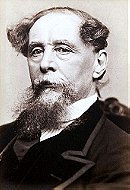
 8.6
8.6
 0
0
